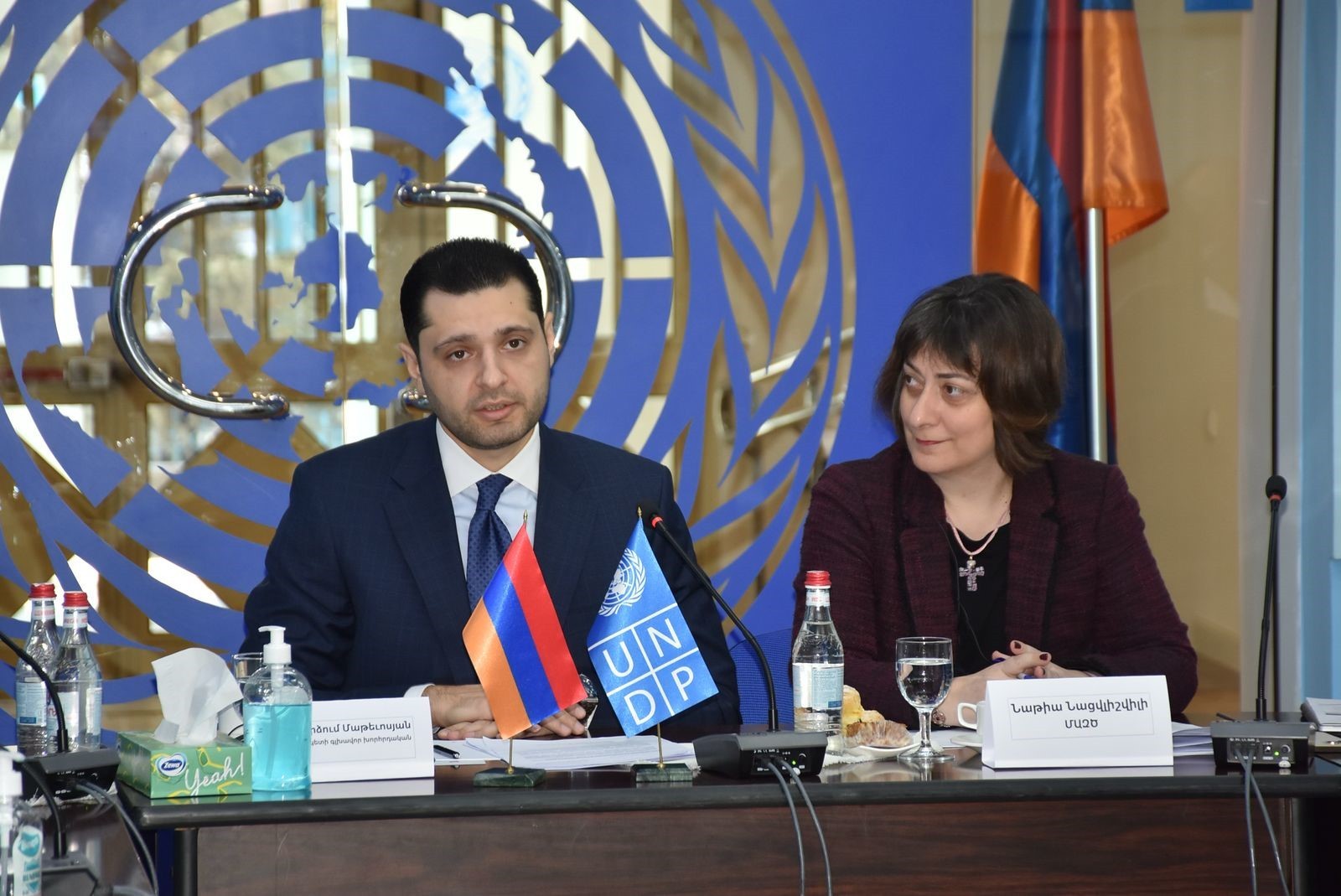
Yerevan, 28 March 2025 – Armenia officially launched the Biodiversity Finance Initiative (BIOFIN) project today at an event held at UN House. The four-year initiative, funded by the Global Environment Facility (GEF) and implemented by the United Nations Development Programme (UNDP) in Armenia, is expected to increase funding for biodiversity conservation.
Despite occupying only 6.7% of the Caucasus region, Armenia is recognized as a biodiversity hotspot due to its exceptional species richness and a high concentration of endemic species. The World Wildlife Fund (WWF) classifies the Caucasus region among the world's 200 most critical ecoregions. Approximately 13% of its territory consists of specially protected areas, preserving nearly 60% of the country's flora and fauna.
However, Armenia’s biodiversity faces severe threats primarily driven by deforestation, mining, environmental pollution, unregulated land use, and unsustainable management of natural resources. These threats are exacerbated by natural factors, including climate change - manifested through rising temperatures and changing precipitation patterns, and natural disasters, which are also significantly influenced by human actions. These combined pressures lead to ecosystem degradation and declining populations of various species.
To combat these challenges, Armenia has long prioritized biodiversity conservation, implementing significant legislative and institutional reforms, protecting endangered species, and effectively managing protected areas. Notable conservation milestones from 2009 to 2013 include the establishment of Arpi Lake and Arevik National Parks and the Khor Virap, Zangezur, and Khustup reserves. Ongoing efforts include enhancing management practices at Sevan National Park and expanding the Erebuni Reserve.
Against this backdrop, the BIOFIN project will develop a comprehensive national biodiversity finance plan, identifying funding gaps and opportunities to secure additional resources, optimize existing financial flows, and introduce innovative financing mechanisms. This initiative will contribute to Armenia's preparations to host the 17th Conference of the Parties (COP-17) to the UN Convention on Biological Diversity in 2026, positioning the nation as a leader in biodiversity finance solutions.
Opening the event, Hambardzum Matevosyan, Chief Advisor to the Prime Minister of Armenia and Chair of the COP-17 Organizing Committee, underscored the project's importance, citing the Kunming-Montreal Global Biodiversity Framework and emphasizing the need to address implementation gaps and funding requirements by 2030. Matevosyan highlighted UNDP’s role in mobilizing crucial financial resources.
UNDP Resident Representative Natia Natsvlishvili emphasized the necessity of stakeholder partnerships for integrated environmental solutions, particularly under shrinking global development funds. Ainur Shalakhanova, Environmental Finance Analyst from Global BIOFIN team, welcomed Armenia’s commitment, citing successful examples from Kazakhstan and Costa Rica, and stressed the critical roles of the Ministries of Environment and Finance.
Photo: UNDP Resident Representative Natia Natsvlishvili
Participants at the event identified pastures as vital biodiversity areas and advocated for improved legislation and institutional frameworks to attract private sector investments, proposing innovative solutions such as carbon credits. The Central Bank of Armenia suggested incorporating biodiversity finance solutions into its Green product framework, and participants stressed the critical role of agrobiodiversity for both conservation and rural livelihoods.
Armenia joins 92 new countries that joined BIOFIN last year under the GEF-8 Umbrella Programme, bringing the total number of BIOFIN countries to 133. We look forward to more nations launching their BIOFIN projects throughout 2024.
Photo: Official launch of BIOFIN in Armenia with participation of key stakeholders, 28 March 2025
Categories
Archives
- Abril 2025 (1)
- Marzo 2025 (8)
- Febrero 2025 (2)
- Enero 2025 (5)
- Diciembre 2024 (4)
- Noviembre 2024 (5)
- Octubre 2024 (14)
- Septiembre 2024 (6)
- Agosto 2024 (9)
- Julio 2024 (7)